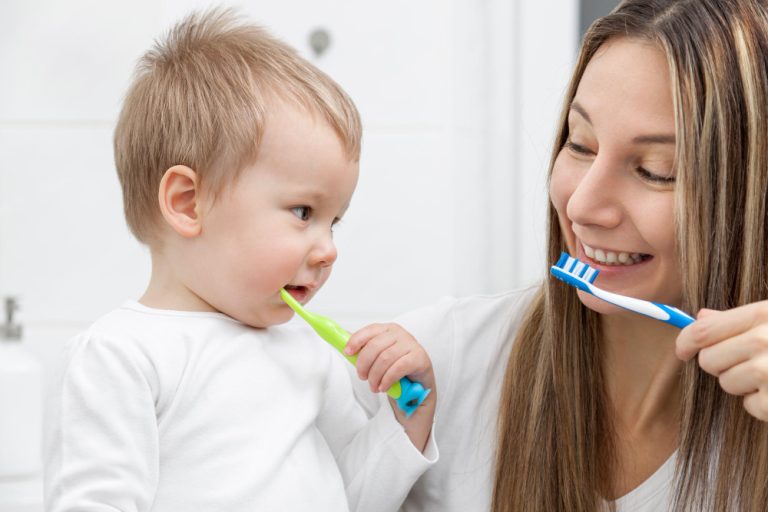How To Stop Green Poop In Babies? What Parents Should Know
Have you ever opened your baby’s diaper to find green poop staring back at you, causing a wave of concern and confusion to wash over you as a parent? Are you looking for solutions on how to stop green poop in babies? Rest assured, the mystery of green baby poop is not as daunting as it may seem. Understanding the reasons behind this colorful phenomenon is key to navigating your baby’s digestive health journey with confidence and clarity.
In our comprehensive guide, “how to stop green poop in babies,” we delve into the intricacies of why your little one’s poop may take on a vibrant hue and what you can do about it. Here’s what you can expect to uncover:
- Unpacking the potential impact of diet on green poop
- Exploring the significance of breast milk and formula on poop color
- Delving into actionable tips for maintaining healthy bowel movements in babies
- Shedding light on when green poop warrants concern and when it’s a normal occurrence
With expert insights and practical advice at your fingertips, you’ll be equipped to decode the mysteries of green baby poop and ensure your child’s digestive system stays on track.
Introduction to Green Poop in Babies

Babies bring immense joy and love into our lives, but they also come with numerous questions and concerns for parents. One common issue that often causes confusion and worry is green poop. While it may sound alarming, green poop in babies is usually harmless and temporary. In this section, we will explore what green poop is, why it can occur in babies, and why addressing this issue is important for parents’ peace of mind.
Green poop in infants is generally caused by the rapid movement of stools through the digestive system. As a result, bile, which is responsible for giving stools their typical brown color, doesn’t have enough time to break down completely. This leads to a greenish hue in the poop.
There are several reasons why babies may experience green poop. One contributing factor is the mother’s diet for breastfed babies. Certain foods, like leafy greens or foods with artificial dyes, can influence the color of a baby’s poop. In formula-fed babies, changes in the type or composition of formula can also cause green poop.
While green poop is usually nothing to worry about, it’s essential for parents to address this issue. By understanding the causes and potential dietary factors, parents can make informed decisions to ensure their baby’s digestive health and overall well-being. Let’s delve deeper into the various factors that can contribute to green poop in babies.
Causes of Green Poop in Babies
Green poop in babies can be concerning for parents, but it is usually not a cause for alarm. Understanding the various factors that can contribute to this phenomenon can help alleviate worries and provide guidance on how to address it. Here are some common causes of green poop in babies:
1. Dietary Changes
Introducing solid foods or making changes to a baby’s diet can influence the color and consistency of their poop. Foods that are rich in chlorophyll, such as leafy green vegetables, can give the poop a green tint. Additionally, consuming large amounts of green foods or fruits with natural dyes like blueberries or grapes can affect the color of the stool.
2. Formula Feeding
If your baby is formula-fed, switching to a different formula or brand may impact the color of their poop. Iron-fortified formulas, which are commonly recommended for infants, can cause the stool to appear green. Additionally, some babies may have difficulty digesting certain ingredients in the formula, leading to changes in poop color.
3. Iron Supplements
Iron supplementation, either given to the baby or taken by the mother, can contribute to green poop. Iron can affect the color of the stool by speeding up the transit time in the digestive system.
4. Potential Medical Conditions
In rare cases, green poop can be a sign of an underlying medical condition. Conditions such as malabsorption, food allergies, or gastrointestinal infections may cause the stool to appear green. It is important to consult a healthcare professional if your baby’s green poop is accompanied by persistent symptoms like vomiting, diarrhea, or weight loss.
Remember that occasional green poop is generally considered normal in babies, especially when it is not accompanied by other concerning symptoms. However, if you have any concerns or if the green poop persists, it is always a good idea to seek medical advice to rule out any potential issues.
Understanding the causes of green poop in babies can help parents make informed decisions about their baby’s diet, formula, and overall health. By closely monitoring their baby’s poop and seeking medical advice when necessary, parents can ensure the well-being and digestive health of their little ones.
Impact of Breast Milk on Poop Color

Breast milk plays a crucial role in the development of a baby’s digestive system, and it can have an impact on the color of their poop. Here’s how breast milk influences the color of a baby’s poop and what variations are considered normal:
Normal Poop Color
Breastfed babies typically have yellowish and mustard-colored poop. This color is a result of substances present in breast milk, such as beta-carotene and bilirubin. These components contribute to the characteristic hue of the stool.
Greenish Tinges
Occasionally, breastfed babies may have poop with greenish tinges. This can be due to factors like foremilk and hindmilk imbalance or rapid digestion. When babies consume more foremilk, which is thinner and lower in fat, their poop may have a greener appearance.
Shade Variations
It’s normal for breastfed babies’ poop color to vary from day to day. It can range from yellow to brown, and even greenish at times. These variations in color are generally not a cause for concern.
Consistency
Breastfed baby poop is usually soft and loose, with a texture similar to that of mustard or cottage cheese. The consistency may change depending on the baby’s age and diet.
Remember, if you notice any drastic changes in your baby’s poop color, such as persistent dark green or unusual shades like black or white, it’s important to consult a healthcare professional for guidance.
Potential Dietary Causes of Green Poop
When it comes to green poop in babies, one of the possible culprits is their diet. While it is important to note that occasional green poop is usually harmless, certain dietary factors can contribute to more frequent occurrences. Here are some potential dietary causes to be aware of:
Consuming Large Amounts of Green Leafy Vegetables
Introducing solid foods to your baby’s diet is an exciting milestone, but it’s essential to pay attention to the types of foods they consume. Green leafy vegetables, such as spinach, kale, and broccoli, are packed with essential nutrients. However, their high chlorophyll content can sometimes lead to green-colored stools.
Certain Medications Taken by the Mother
Breastfed babies can also experience green poop if their mother is taking certain medications. Medications that contain dyes or artificial coloring, such as iron supplements or antibiotics, can affect the color of breast milk and, subsequently, the color of a baby’s poop.
While these dietary causes are relatively common, it’s important to remember that every baby is unique, and their digestive systems can react differently to different foods or medications. If you notice a persistent change in your baby’s poop color or have concerns about their overall health, consult with your pediatrician for further guidance.
Remember, maintaining a balanced and varied diet for your little one, along with regular check-ups, will help ensure their digestive health and overall well-being.
Addressing Green Poop in Formula-Fed Babies

When it comes to formula-fed babies, green poop can be a common occurrence. Fortunately, there are strategies that parents can implement to prevent and manage this issue. Here are some useful tips to address green poop in formula-fed babies:
1. Adjust Formula Type
Sometimes, a switch in formula can help regulate your baby’s bowel movements. If your baby is experiencing green poop, consider trying a different formula that is specifically designed for sensitive stomachs or targets common digestive issues. Consult with your pediatrician before making any changes to ensure you choose a suitable formula for your baby.
2. Ensure Proper Preparation
Properly preparing the formula is crucial in preventing green poop. Follow the instructions provided by the formula manufacturer, including the correct water-to-powder ratio. Using too much powder can lead to an imbalance in the formula’s composition, potentially resulting in green poop.
3. Maintain Consistent Feeding Schedule
Establishing a regular feeding schedule can have a positive effect on your baby’s digestion. Aim to feed your baby at consistent intervals throughout the day, allowing their digestive system to become accustomed to the formula.
4. Consult with a Healthcare Professional
If your baby’s green poop persists despite these measures, it is advisable to seek guidance from a healthcare professional. They can evaluate your baby’s overall health, assess any underlying issues, and provide additional recommendations or interventions if necessary.
Remember, every baby is different, and what works for one may not work for another. Patience and open communication with your pediatrician is key to addressing green poop in formula-fed babies effectively.
Remedies for Green Poop in Breastfed Babies
Breast milk is the primary source of nutrition for newborns, and it plays a significant role in determining the color and consistency of their poop. If you notice that your breastfed baby’s poop has a greenish hue, there are several remedies that can help address this issue and restore normal bowel movements.
Balancing Foremilk and Hindmilk
One possible reason for green poop in breastfed babies is an imbalance between foremilk and hindmilk. Foremilk is the thinner milk that comes first during a feeding, while hindmilk is the thicker, fattier milk that comes later. An imbalance between the two can result in green poop. To ensure a proper balance, encourage your baby to nurse longer on each breast before switching sides. This will ensure that your baby receives the richer hindmilk, which can help regulate poop color.
Ensuring a Proper Latch
A poor latch during breastfeeding can also contribute to green poop. When the baby doesn’t latch properly, they may ingest more air, leading to digestive issues and green poop. To address this, ensure that your baby has a deep latch by positioning them correctly and ensuring they have a wide open mouth. Seek guidance from a lactation consultant or healthcare professional if you’re unsure about the proper latch technique.
Seeking Guidance from a Lactation Consultant
If your baby continues to have green poop despite making adjustments to breastfeeding techniques, it may be helpful to consult a lactation consultant. They can provide personalized guidance based on your specific situation and address any breastfeeding challenges that may be contributing to the issue.
By implementing these remedies, breastfed parents can help their babies achieve regular, healthy bowel movements. If you have any concerns or if the green poop persists for an extended period or is accompanied by other symptoms, it’s always a good idea to consult with a healthcare professional for further evaluation and guidance.
Remember, every baby is unique, and their digestive systems go through developmental changes. Understanding and monitoring your baby’s poop can provide valuable insights into their overall health and well-being.
When to Seek Medical Advice

If you notice persistent green poop in your baby’s diaper, it is essential to consider seeking medical advice. While occasional green poop is typically harmless and resolves on its own, certain situations warrant consultation with a healthcare professional. Here are some scenarios when it is recommended to reach out for assistance:
1. Persistent green poop
If your baby consistently has green poop for an extended period, it could indicate an underlying issue that requires medical attention.
2. Other accompanying symptoms
If the green poop is accompanied by signs such as fever, diarrhea, vomiting, or excessive fussiness, it is important to consult a healthcare professional.
3. Change in behavior or weight
If there is a noticeable change in your baby’s behavior or weight gain, it is advisable to seek medical advice to rule out any potential health concerns.
4. Unusual consistency or blood
If the green poop has an unusual consistency, such as being watery or containing mucus, or if you notice any blood in the stool, it is crucial to consult a healthcare professional promptly.
Remember, every baby is unique, and what may be normal for one may differ for another. Trust your instincts as a parent and reach out to your baby’s healthcare provider if you have any concerns about their green poop. They will be able to accurately assess the situation and provide appropriate guidance and support.
Key Takeaways: How To Stop Green Poop In Babies
In conclusion, understanding the color of your baby’s poop is important for monitoring their digestive health. While green poop in babies can be unsettling, it is often a harmless occurrence that can be managed with some simple adjustments. Here are the main takeaways from this article:
1. Monitor and track your baby’s poop color
Regularly checking your baby’s diaper can help you identify any changes in poop color. This will give you a better understanding of what is normal for your baby.
2. Causes of green poop
Green poop in babies can be caused by a variety of factors, including dietary changes, formula feeding, iron supplements, and sometimes medical conditions. Identifying the cause can help in managing the issue effectively.
3. Breast milk influence
Breastfed babies may have variations in poop color, ranging from yellow to green. This is considered normal, and changes in color can be influenced by the mother’s diet.
4. Dietary considerations
Certain foods, like green leafy vegetables, can contribute to green poop in breastfed babies. Additionally, certain medications taken by the mother may also impact the color of the baby’s poop.
5. Formula-fed babies
If your baby is formula-fed and experiencing green poop, consider adjusting the type of formula or consulting with a healthcare professional for guidance.
6. Breastfeeding tips
For breastfed babies, ensuring a proper latch, balancing foremilk and hindmilk, and seeking advice from a lactation consultant, if needed can help address green poop.
7. Know when to seek medical advice
If your baby has persistently green poop accompanied by other symptoms or if you have concerns about their digestive health, it’s important to consult a healthcare professional for further evaluation and guidance.
Remember, understanding your baby’s poop color is just one aspect of their overall well-being. If you have any concerns, reach out to your healthcare provider for support and guidance. We hope you now understand how to stop green poop in babies; for any other queries, please feel free to reach out to us.







